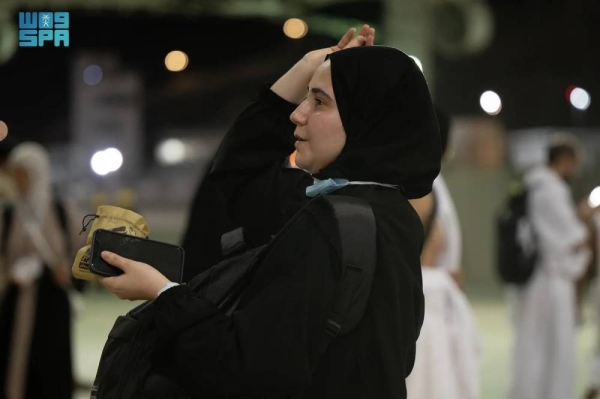The annual Hajj pilgrimage is a sacred journey for Muslims around the world, where millions of pilgrims come together to perform rituals in Makkah, Saudi Arabia. After spending a night in Muzdalifah, pilgrims moved to Mina to perform the symbolic stoning of the devil. This ritual marks the start of the Eid Al-Adha celebrations and the final days of the Hajj pilgrimage. Pilgrims walked to the stoning areas, some pushing disabled pilgrims on wheelchairs, under the scorching summer sun. After performing the stoning ritual at Jamarat Al-Aqaba, they returned to their camps to rest before continuing with other rituals.
The journey from Arafat to Muzdalifah and then to Mina was smooth and orderly, with pilgrims reciting talbiyah and following the Sunnah of the Prophet Muhammad (peace be upon him). In Muzdalifah, they offered their prayers and stayed overnight before heading back to Mina to perform the stoning ritual at Jamarat Al-Aqba. The security measures in place at the Jamarat Bridge Complex ensured a safe and organized movement of pilgrims during the stoning ritual.
After the stoning ritual, pilgrims sacrificed animals and partially exited the state of ihram by shaving or cutting hair for men and trimming hair for women. They then changed back into normal clothing before proceeding to Makkah to perform Tawaf Al-Ifadah and sai’, completing the rituals of Hajj. With the performance of tawaf and sai’, pilgrims completely exit the state of ihram and move on to the Tashreeq Days, where they perform the stoning ritual at each of the three Jamarat.
This year, more than 1.83 million pilgrims performed Hajj, including both foreign and domestic pilgrims. The General Directorate of Civil Defense ensured that all necessary services were in place to support the pilgrims during their journey. The smooth coordination of security, health, ambulance, hygiene, and civil defense services at the Jamarat facility and its surrounding areas facilitated the movement of pilgrims and ensured their safety and well-being throughout the rituals.
The Hajj pilgrimage is a time of spiritual reflection, unity, and devotion for Muslims, as they come together to fulfill one of the Five Pillars of Islam. The journey to Makkah and the performance of the rituals of Hajj are significant milestones in the lives of pilgrims, as they seek forgiveness, blessings, and spiritual enlightenment. The Saudi government’s efforts to facilitate the pilgrimage and provide necessary services for the pilgrims play a crucial role in ensuring a successful and meaningful experience for all who embark on this sacred journey.










